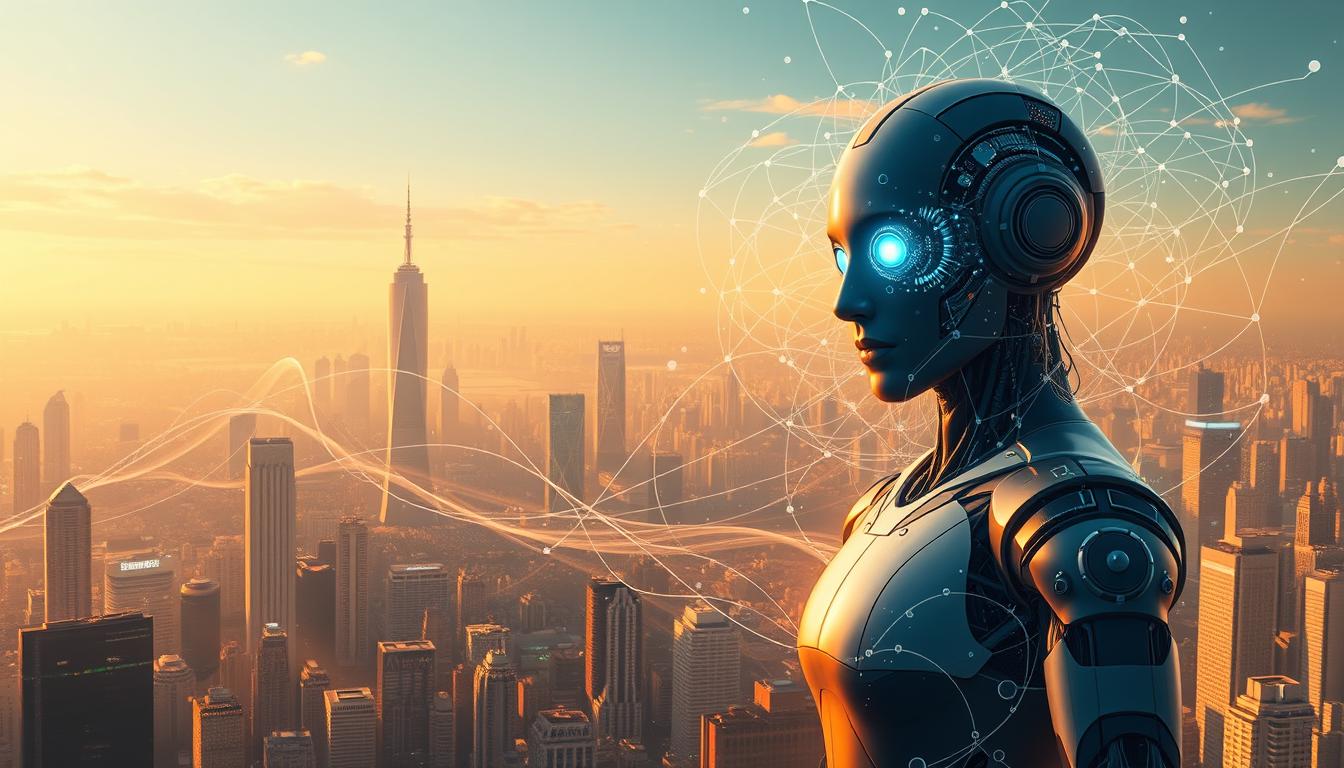
Artificial intelligence is changing quickly, and 2025 seems set to be an important year for one of its most promising developments: agentic AI. It goes one step further than normal AI, letting AI become an agent that can figure things out, plan ahead, and carry out complicated missions without much help from people. While exploring this trend, we’ll examine the nature of agentic AI, why people are enthusiastic, where it stands, how it’s built, instances in the real world, its use cases, difficulties, and future developments.

What is Agentic AI?
Agentic AI is about AI systems that can figure out tasks by themselves, turning messy problems into manageable steps, making a plan, and taking action mostly alone. While earlier AI systems were only good at specific jobs like analyzing data or creating content, agentic AI is able to handle many different kinds of tasks by thinking about the situation and what needs to be achieved.
The main thing that runs agentic AI is advanced large language models (LLMs) and other AI technologies that help it to reason, learn, and adapt. They interact with different areas like the internet or databases, and use that space to find information, decide on steps to take, and actually take those steps. As an example, an agentic AI could be given the job of booking a flight, so it would search for flights, check prices, look at schedules, and book the ticket itself.
Having this ability to work independently makes agentic AI unique and is causing a major shift in how we use AI in both our jobs and personal lives.
Why is Agentic AI Trending in 2025?
Agentic AI is a major trend in the AI world for 2025, which is well justified. It has the potential to change how businesses run and how people use technology. 37% of IT leaders, according to the 2025 AI & Data Leadership Executive Benchmark Survey, say their companies are already using agentic AI, and 68% expect to start using it soon. Agentic AI is spreading quickly because it can take on complex tasks, raise efficiency, and bring totally new uses to users.
People are excited about agentic AI because it is able to do more than just generate content or analyze data. In turn, it becomes a partner or helper that manages complex work that involves reasoning, planning, and getting things done. It’s the change from using AI as a tool to having AI act like an autonomous agent that makes it so attractive and earns it the title of the ‘most trending AI trend’ in 2025, according to the industry.
However, there’s some skepticism. There are those who think the excitement might be excessive, given that agentic AI is young and has problems with trust and accuracy to solve. That said, most experts agree that agentic AI will be a main area for innovation in 2025.

Current Adoption and Future Expectations
Agentic AI is gradually being used in organizations for internal reasons. Agentic AI is used by companies to manage day-to-day tasks, such as monitoring IT support, dealing with customers, or searching the web for information. The initial applications are usually small in scale and well-structured, so they are reliable and have fewer risks.
Although the potential for agentic AI is great, it is still an area with much room for growth. It is expected by experts that when the technology advances, it will take on tougher missions and interact with other systems to develop ‘agent ecosystems.’ These environments may enable different AI systems to team up and finish tasks, decreasing the role of humans. A supply chain system example uses several agents to predict customer demand, handle its inventory, and place orders with little human involvement.
However, skepticism persists. According to some, the excitement is largely push from vendors, and meaningful challenges need to be solved, including reliability, error control, and ethics. Because of the rapid adoption, it seems that agentic AI will be a major player in 2025 and afterward.
How Does Agentic AI Work?
Agentic AI’s ability to act autonomously relies on several key capabilities:
- Reasoning and Planning: Agentic AI uses advanced LLMs to understand context, follow instructions, and make decisions. For example, it can break down a complex task—like booking a trip—into smaller steps (e.g., finding flights, comparing prices, making reservations) and execute them in sequence.
- Step-by-Step Execution: Technologies like the ReAct framework enable AI agents to take actions based on their reasoning. For instance, if an agent needs to verify information, it might navigate to a website, extract the necessary data, and use it to complete the task.
- Learning and Adaptation: Agentic AI can learn from its interactions, improving over time. This adaptability allows it to handle new or unexpected situations more effectively.
Advancements in reasoning models, such as OpenAI’s o1 and o3, and Google DeepMind’s Gemini 2.0 Flash Thinking, have significantly enhanced the accuracy and reliability of agent’s AI, particularly for tasks requiring logical thinking and problem-solving. These models enable agents to perform tasks like math, coding, or logical reasoning with greater precision.
Examples of Agentic AI in Action
Several notable examples of agentic AI are already in development or use:
- Google DeepMind’s Mariner: This experimental web-browsing agent demonstrated step-by-step reasoning during a demo. When tasked with finding a recipe, Mariner realized it needed to confirm the type of flour required, navigated back to the recipe page, and completed the task (AI Agents).
- OpenAI’s Operator: This agent can perform tasks like ordering groceries, booking travel, or buying products based on simple text prompts. While still early-stage, it showcases the potential for AI to handle everyday tasks autonomously.
- Customer Service AI: Companies are using agentic AI to handle inquiries, resolve issues, and process refunds or exchanges without human intervention, improving efficiency and customer satisfaction (NVIDIA Blog).
These examples highlight how agentic AI can move beyond simple automation to perform tasks that require understanding, decision-making, and action.
Potential Applications and Industries
The applications of agentic AI are vast and span multiple industries:
| Industry | Applications |
|---|---|
| Customer Service | Handling inquiries, resolving issues, processing transactions autonomously. |
| Healthcare | Assisting with administrative tasks, patient scheduling, preliminary diagnoses. |
| Workplace | Automating inventory management, order processing, data entry. |
| Personal Assistance | Planning trips, managing finances, providing companionship via virtual assistants. |
In customer service, AI agents can enhance self-service capabilities and reduce response times, with over half of service professionals reporting improved customer interactions (NVIDIA Blog). In healthcare, agentic AI could streamline administrative tasks or support clinical decision-making. In the workplace, it can automate routine tasks, freeing employees for strategic work. For individuals, agentic AI could act as a personal assistant, handling everything from travel planning to financial management.
As the technology matures, its applications will likely expand, touching nearly every aspect of business and personal life.
Challenges and Ethical Considerations
While agentic AI holds immense promise, it also presents significant challenges:
The potential for agentic AI to be used in defense applications also raises ethical debates, with some questioning the implications of AI in military contexts (Defense Contracts).
The Future of Agentic AI
Agentic AI represents a significant leap forward in artificial intelligence, offering the potential to automate complex tasks and transform how we work and live. As we move through 2025, this technology is rapidly evolving, with many organizations already exploring its applications. From customer service to healthcare and beyond, agentic AI promises to unlock new possibilities and drive innovation.
However, its development must be approached with caution. Addressing challenges like error management, cybersecurity, job displacement, and ethical concerns will be critical to ensuring that agentic AI is developed and used responsibly. With careful planning and governance, agentic AI could become one of the most transformative technologies of our time, making 2025 a defining year for AI.

Thank You!





